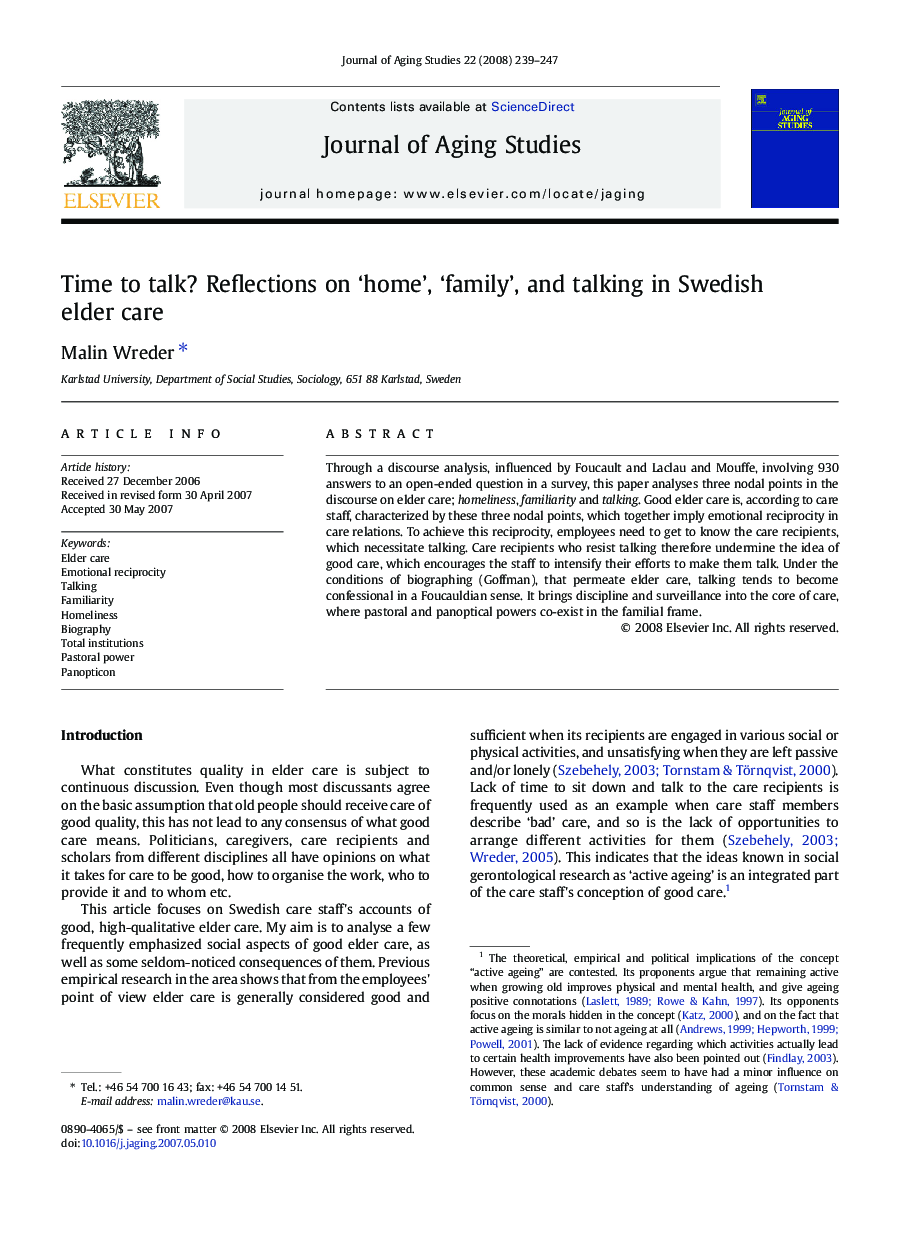| Article ID | Journal | Published Year | Pages | File Type |
|---|---|---|---|---|
| 1082083 | Journal of Aging Studies | 2008 | 9 Pages |
Through a discourse analysis, influenced by Foucault and Laclau and Mouffe, involving 930 answers to an open-ended question in a survey, this paper analyses three nodal points in the discourse on elder care; homeliness, familiarity and talking. Good elder care is, according to care staff, characterized by these three nodal points, which together imply emotional reciprocity in care relations. To achieve this reciprocity, employees need to get to know the care recipients, which necessitate talking. Care recipients who resist talking therefore undermine the idea of good care, which encourages the staff to intensify their efforts to make them talk. Under the conditions of biographing (Goffman), that permeate elder care, talking tends to become confessional in a Foucauldian sense. It brings discipline and surveillance into the core of care, where pastoral and panoptical powers co-exist in the familial frame.
